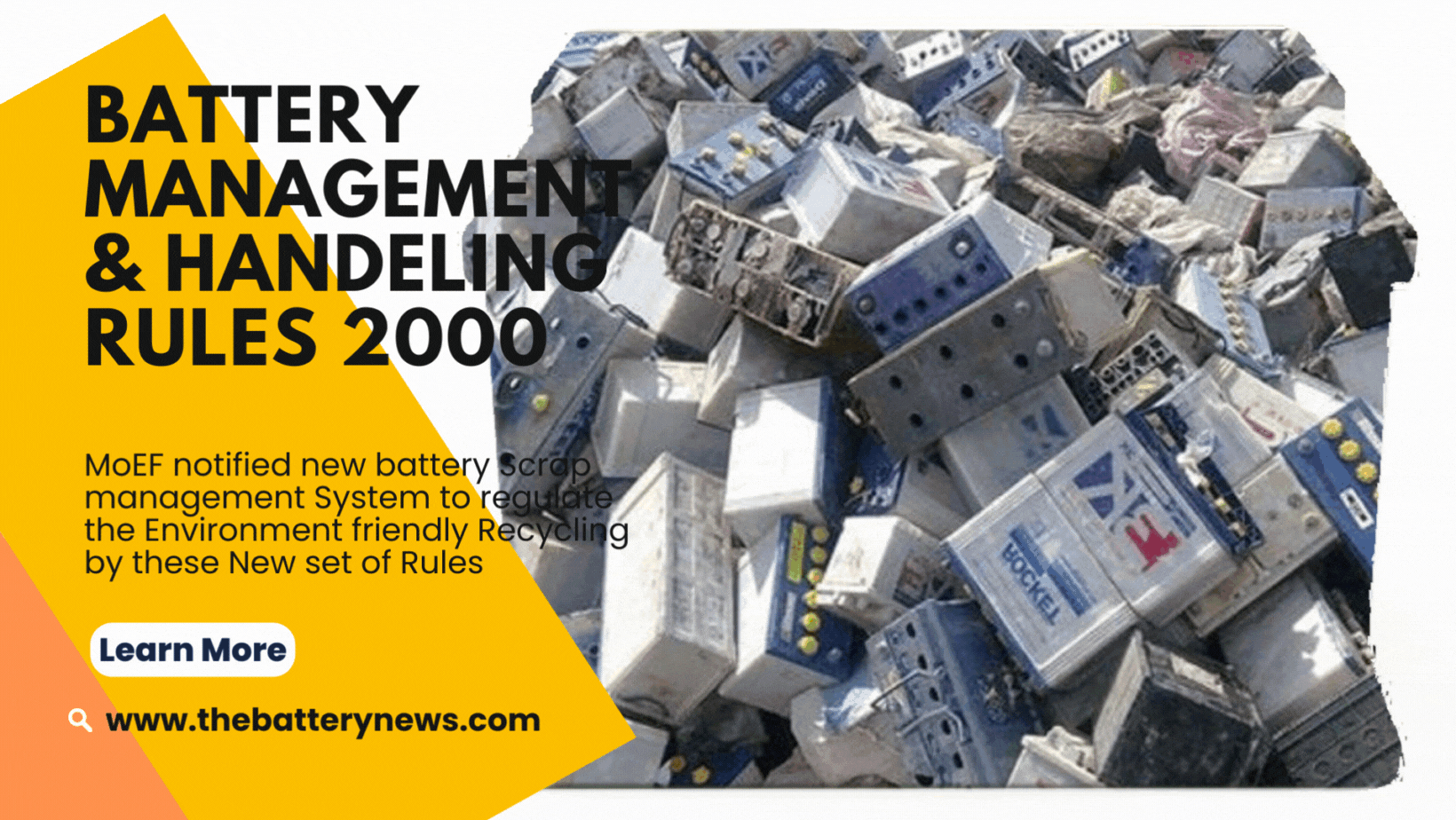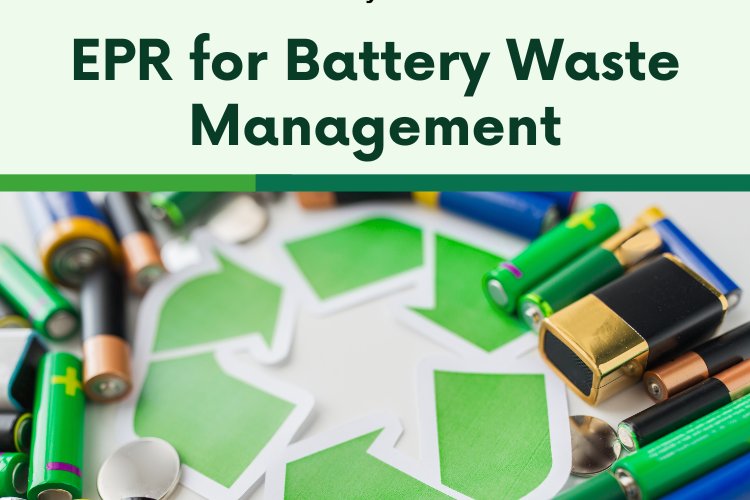
Fri, 01 Mar 2024
CPCB directs all SPCBs/PCCs to withdraw CTO of Battery Recyclers for not complying with EPR
The Central Pollution Control Board (CPCB), under battery waste management Rules 2022, on February 26, 2024 issued a direction to all SPCBs/PCCs to withdraw the consent to operate of such waste battery recyclers who are not uploading the necessary documents and invoices required for the generation of the EPR credits on the online EPR portal. Additionally, CPCB directed the SPCBs/PCCs to verify the installed plant & machinery and the capacities of the waste battery recyclers, as well as the
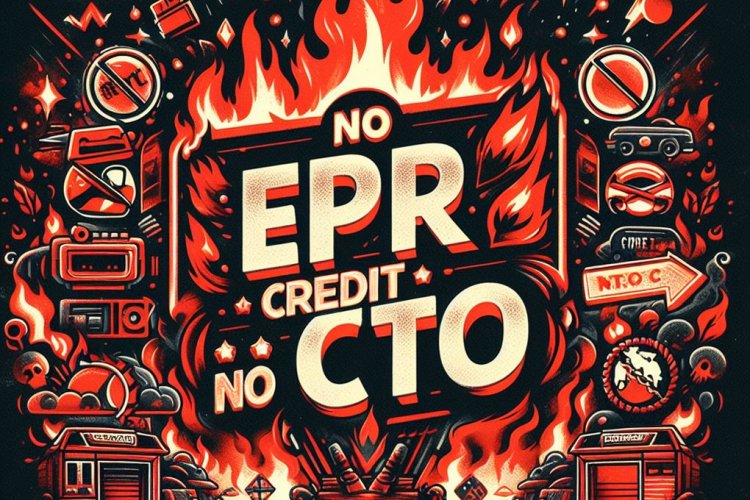
Fri, 01 Mar 2024
ईपीआर अनुपालन पर सीपीसीबी के नए निर्देश - केंद्रीय प्रदूषण नियंत्रण बोर्ड ने बैटरी रिसाइक्लर्स
बैटरी वेस्ट मेनजमेंट रुल्स 2022 के अनुसार प्रदूषण नियंत्रण बोर्ड (CPCB) ने 26 फरवरी, 2024 को सभी SPCB/PCC को ऐसे बैटरी रिसाइक्लरों की CTO को वापस लेने का निर्देश जारी किया, जो ऑनलाइन EPR पोर्टल पर EPR क्रेडिट का सृजन कर जारी करने के लिए आवश्यक दस्तावेज और चालान अपलोड नहीं कर रहे हैं।

Mon, 26 Feb 2024
New EPR rules are taking shapes under PMO directive to make Battery Scrap recycling more efficient a
As per the provision under Rule 4 (1), Producer has the obligation of Extended Producer Responsibility (EPR) for the Battery that they introduce in the market to ensure the attainment of the recycling or refurbishing obligations. Extended Producer Responsibility (EPR) is a policy that holds manufacturers and importers of electronic products responsible for the entire lifecycle of their products. This includes managing the waste generated from those products.
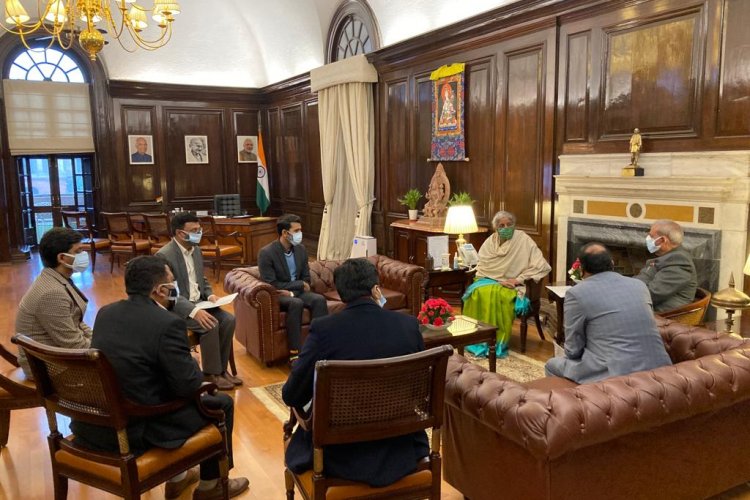
Fri, 07 Jan 2022
वित्त मंत्री ने लैड रीसाइक्लिंग व्यापार और उद्योग में बाधाओं का मुकाबला करने के लिए बैटरी स्क्रैप को
MRAI ने माननीय वित्त मंत्री श्रीमती निर्मला सीतारमन को सुझाव दिया कि बैटरी स्क्रैप व्यापार को सीजीएसटी अधिनियम 2017 के रिवर्स चार्ज मैकेनिज्म (नियम 9 (3)) के तहत लाया जाए। एमआरएआई के अनुसार, इससे न केवल कर अनुपालन में सुधार होगा बल्कि एमओईपीसीसी द्वारा बनाए गए बीएमएचआर नियमों के तहत पर्यावरण अनुपालन और ईपीआर लक्ष्यों में सुधार करने में भी मदद मिलेगी । वे आगे जोड़ते हैं कि इससे सालाना कर संग्रह में २००० करोड़ रुपये की वृद्धि हो सकती है ।

Fri, 07 Jan 2022
MRAI requests Finance Minister to bring the Battery Scrap under Reverse Charge Mechanism to counter
The MRAI delegation Suggest to Hon’ble Finance Minister Mrs. Nirmala Seetharaman to bring the Battery Scrap Trade under Reverse Charge Mechanism (Rule 9(3)) of CGST Act 2017. According to MRAI, this will not only improve tax compliances but will also help in improving environmental compliance and EPR targets under BMHR rules as framed by MOEFCC. They further add that this may increase the annual tax collection by Rs 2000 Crore.
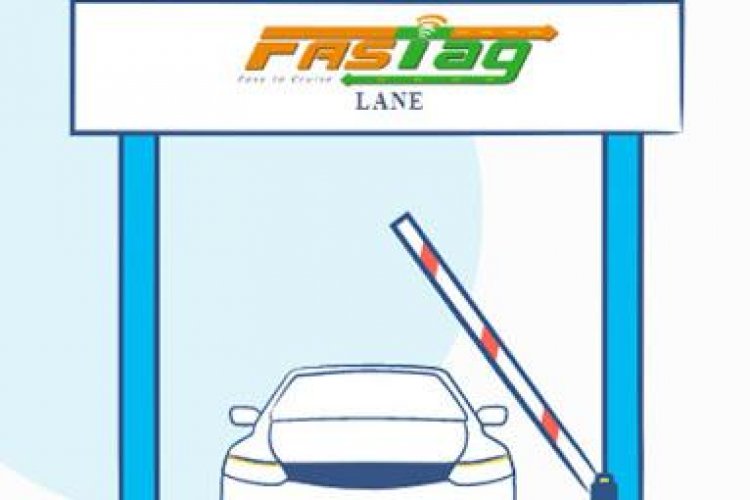
Sun, 20 Jun 2021
Commercial vehicles get real-time data tracking- FasTag, RFID combined for E-way Bill.
With the help of FasTag and RFID government has provided GST officers with real-time data of commercial vehicle movements on the highway, this will help them to keep live surveillance on those who try to dodge GST and the vehicles on the road.

